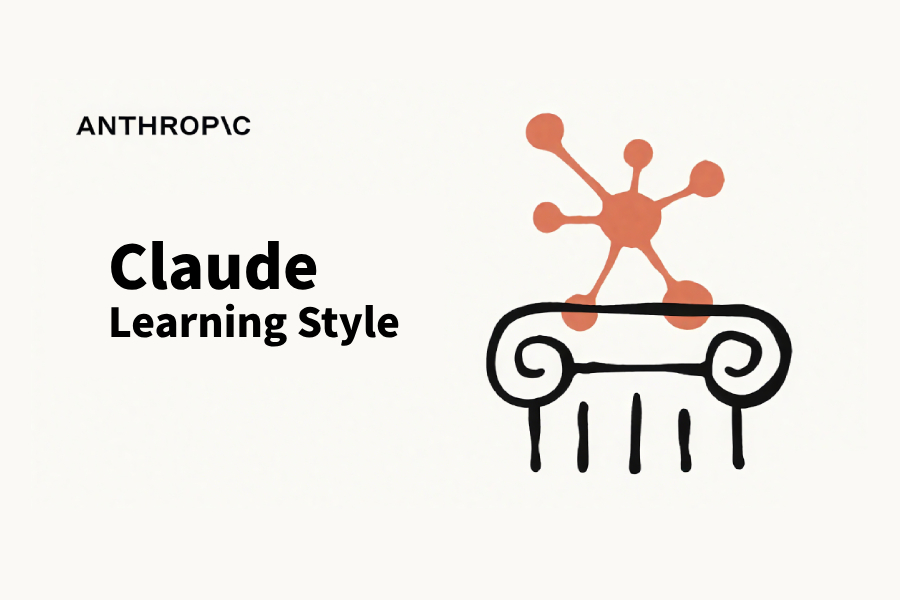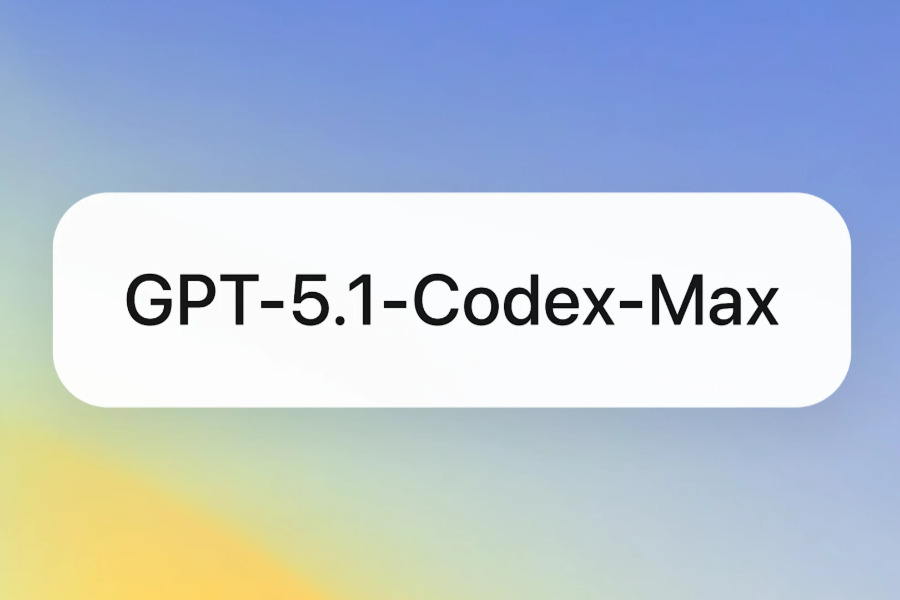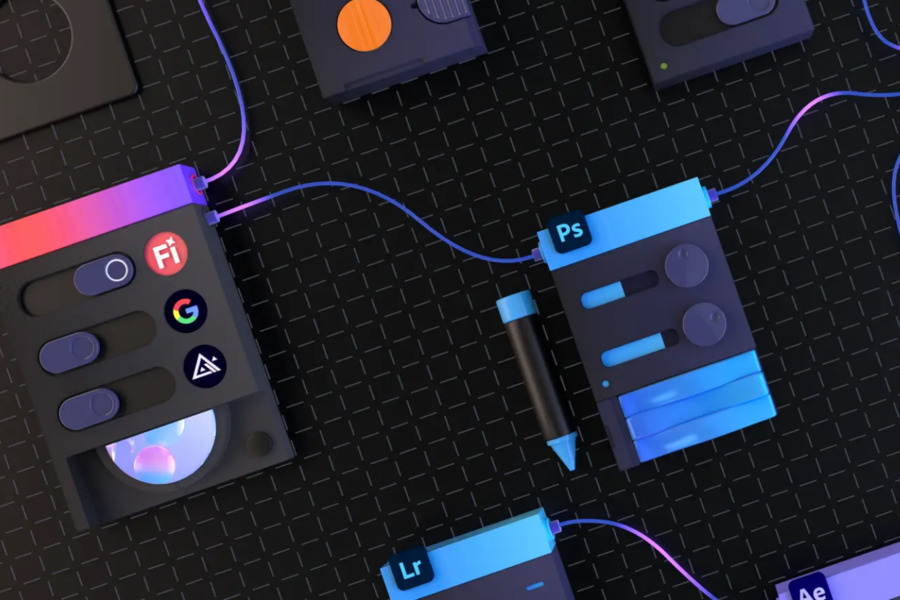August 15, 2025—Anthropic announced that the Claude learning style feature is rolling out across all Claude.ai platforms. This innovation fundamentally reframes human–AI interaction: from “getting answers” to “learning how to think.” Anthropic’s Claude Learning Style redefines AI education by guiding users to think independently through Socratic dialogue and hands-on coding challenges, shifting from answer-giving to skill-building. Let AGIYes walk you through the details.
I.Claude Learning Style Feature Breakdown
Socratic Dialogue for Everyday Users:In the new “Learning” mode inside the Claude.ai chat interface, the AI employs classic pedagogy: • Step-by-step questions: When asked, “How can I speed up web-page load time?” Claude counters, “Which factors do you believe most affect load speed?” instead of listing solutions. • Error tolerance: If the user’s response is wrong, the system replies, “This direction may be flawed; let’s look at W3C’s latest performance guide, section 3.2.” • Instant toggle: Click “Show me the answer” to revert to traditional Q&A at any time.
Programming Gym for Developers:Via the Claude Code plugin’s /output-style command, developers can choose two modes: • Explanatory mode: While writing a Python sort, the AI adds inline comments: “Quick-sort chosen for average O(n log n) complexity, but watch out for the worst case…” • Learning mode: After the function signature, the AI inserts #TODO: implement the recursion base case (max 10 lines); the session continues once the user submits.
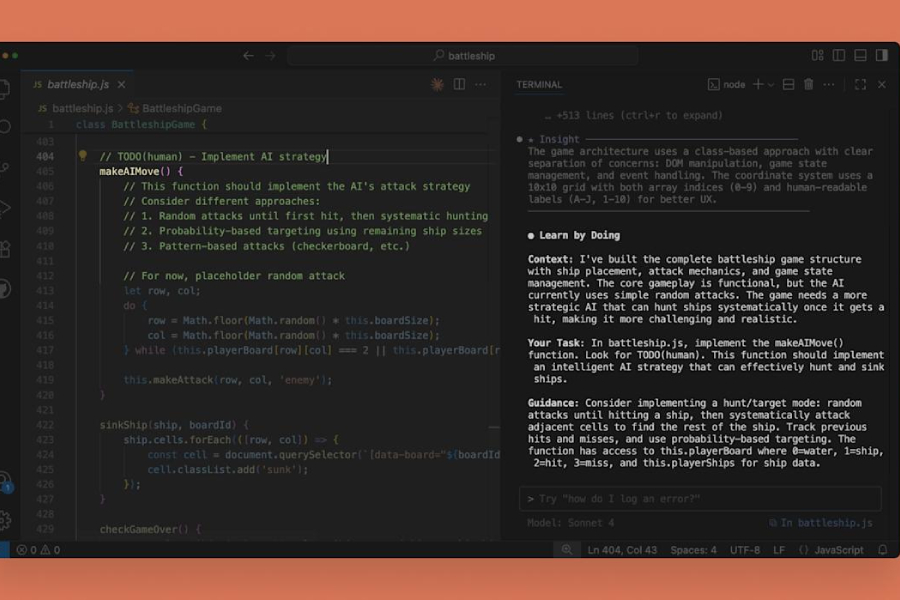
II. Design Philosophy Behind Claude Learning Style
Anthropic Education lead Drew Bent cites MIT 2024 research: “Students who over-rely on direct answers see a 37 % drop in problem-solving ability.” Claude learning style tackles this by:
—Boosting retention: Pilot data show guided-learning users retain 2.4× more knowledge after two weeks versus those who receive direct answers.
—Visualizing thought: The forced #TODO checkpoints in coding have been dubbed by the dev community “the most practical rubber-duck-debugging replacement ever.”
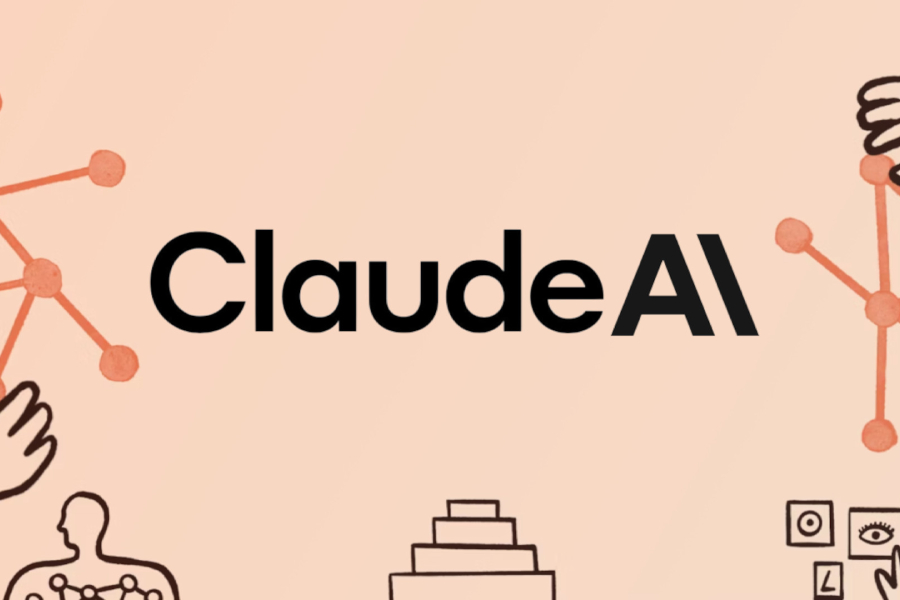
III. Claude Learning Style vs. Claude for Education
Claude learning style is not simply the education version opened to the public; it has been deeply re-engineered for broader needs. Compared with April’s Claude for Education (restricted to .edu users), the new release breaks through in three ways:
- Audience Expansion:Education edition requires .edu verification and serves only academia; Claude learning style is open to all—self-taught coders, certification seekers, and hobbyists alike.
- Architectural Upgrade:Education edition supports only chat-based guidance; the new release bridges natural-language chat (Claude.ai) and programming collaboration (Claude Code plugin) via the /output-style command. Developers can set rules like “insert a user-practice checkpoint every 20 lines.”
- Scenario Adaptability:Education edition targets academic tasks (paper polishing, stepwise problem solving). The new release spans daily knowledge acquisition (e.g., language learning), vocational training (e.g., data analysis), and real-world project development (e.g., GitHub collaboration). Anthropic’s product director told TechCrunch: “We’re building an AI that adapts to learning rhythms, not one locked to a fixed syllabus.”
This shift signals Anthropic’s strategic leap from “education-only tool” to “lifelong learning companion,” echoing the World Economic Forum’s 2025 Future of Jobs Report, which names “adaptive learning” a core workplace competency.
Summary
While most AI systems still chase faster and more accurate answers, Anthropic’s Claude learning style poses a more visionary question: In an age of advancing artificial intelligence, how do we preserve and nurture humanity’s most precious asset – the ability to think independently?
This innovation represents not just a feature upgrade, but a paradigm shift in education. As MIT Media Lab professor Mitchel Resnick observed, “The best learning technology doesn’t replace thinking – it sparks thinking.” Claude learning style embodies this philosophy perfectly.
Anthropic’s official motto – “We don’t give you the fish, we teach you to fish – the 21st century way” – perfectly captures this vision. In a future where AI may automate countless repetitive tasks, the “guided learning” approach championed by Claude learning style could help achieve the ideal human-AI collaboration: where artificial intelligence serves not as a substitute for thought, but as a catalyst for cognitive evolution.
